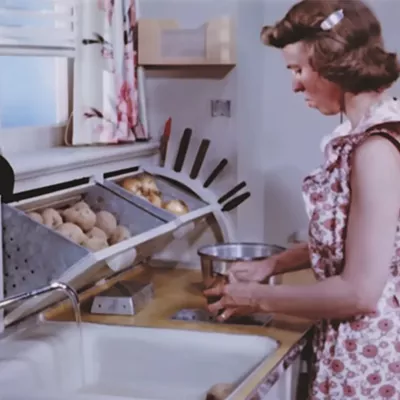The 2008 election and Beijing 2008 Olympics should have had a lasting effect on the way we view the potential success of non-traditional families. Both the newly elected president of the United States and the most gold medal-studded athlete ever were stunning outcomes of single-parent households.
Yet most Americans don’t feel assured the next Barack Obama or Michael Phelps could be walking to the bus stop holding hands with just one parent.
When surveyed about our attitudes toward changing familial trends, it turns out even the most liberal among us still get weird when it comes to “single moms.” Nearly 2,500 respondents in a recent Pew Research Study had more progressive views of multiracial and gay couples raising children, but of “single women having children without a male partner to help raise them” 61 percent said it’s “bad for society.”
Sociologists and advocates of non-traditional families point out that what concerns us isn’t the single mothers themselves, but the poverty, social instability and failures that often occur when moms are forced to be sole breadwinners on a national median annual income of $25,000.
Former State Senate Majority Leader, and current WSU Spokane Chancellor, Lisa Brown, was an unmarried mother to a newborn when she started her legislative career in 1992. She had a steady income and reliable child care across the street from the capitol, but there was no child care for impromptu late-night sessions. So Brown toted her infant son Lucas in his car seat onto the House floor for a vote.
“At some point, I just sat down in my seat with him; I wasn’t thinking I was making any kind of a statement,” Brown recalls. But a news photographer took a photo, some people complained and the chief clerk “let me know that children were not allowed on the floor.”
The media frenzy began that night, after Brown’s colleague told the story to reporters.
Just months after national voters had declared 1992 “The Year of the Woman,” for having elected so many females (among them freshman Senator Patty Murray), now some Washington voters were questioning whether it was “appropriate for a young mother to even be in the Legislature,” Brown recalls. While she may not have intended to start a controversy, the topic of conversation swirling around her was familiar.
“My academic background had been about the role of women in the labor force; how while the economy and labor force were changing, the social structure wasn’t,” Brown says. She and baby Lucas had provided an appropriate case study.
“If you have health care, stable housing and an income, you can build a support network and raise happy, healthy kids,” Brown contends. “I always had a fantastic network of support from family and friends. That was the key to being able to resolve the challenge” of balancing work and parenting without a spouse.
“But women in poverty don’t have those stabilities,” she adds. It was for women who lacked access to health and child care that Brown says she continued to advocate.
Around the same time Rep. Brown was carting her baby to the House floor in Olympia, Celeste Shaw was improvising child care for her young sons in Spokane.
Before the beloved restaurateur was running Chaps restaurant and Cake the Bakery, she worked as a registered nurse.
“There were times my kids slept in the back seat of my car — the security guard kept an eye on them because I couldn’t afford child care and I had to work nights,” Shaw remembers.
“You do what you have to do, but it was incredibly difficult,” she adds. “My lights got shut off. I sold baby clothes to pay for baby food for the kids; I would regift at Christmas”
Shaw and her husband had tried to make their young marriage work, but they lacked the basic skills.
“We were little kids together,” Shaw says. Growing up in Havre, Mont., “he was the only boyfriend I ever had. We got married when I was 18, and I had my first son at 20. By 21, we were already broken up.” During the four years they tried to reconcile, she got pregnant again, then moved to Spokane for nursing school.
“Even though we couldn’t be a good married couple, we both loved our children so much; he was always fair and thoughtful… and he was active with the boys,” she says.
There were times when Shaw could have pushed harder for child support, but she wasn’t willing to let things get ugly.
“I didn’t want to damage our relationship; flawed as it was, he was part of my family, and my friend,” Shaw says. “I knew my children would be fathers someday. I wanted them to learn grace and understanding, tolerance and how to resolve family issues. And you can only do that work between the two parents.”
As Shaw’s position at the hospital grew stronger her standard of living improved, and she maintained her relationship with her ex-husband. “We always celebrated holidays together so the kids would have a complete family,” she says.
With the wedding of her eldest son, Jeff, last summer, and the birth of a grandchild, Shaw is convinced the compromises she reached with her ex-husband are panning out.
“My sons are as solid as sons could be in a home that had a good marriage,” she says.
Third District State Senator Andy Billig (Lisa Brown’s successor) makes a similar assertion; that he and his ex-wife have created an alternative family just as solid as a traditional family.
As co-owner of the Spokane Indians, and as the winner of both elections for which he’s campaigned, it should be no surprise to his constituents and fans that the even-tempered, smiling Billig is even successful at divorce.
“I don’t really feel like a single parent most of the time. Kendra and I are raising Bella together. Just like parents who are married, we talk about major decisions: discipline, school challenges and after-school activities,” he says.
Having their two homes only about a mile apart helps with the logistics of Billig’s joint-custody agreement.
“We split the week so Bella is with me Wednesday, Thursday, Friday and every other Saturday night. We’ve talked about other scenarios, but this seems to work best for all of us,” Billig says. “I would say we get along with each other related to Bella probably just as well as — or better than — many parents that are still together.”
His daughter will visit freshman Sen. Billig in Olympia during his legislative sessions, and stay with him when he’s on recess.
The circumstances Billig describes are what Spokane County Commissioner Todd Mielke had in mind when he realized his marriage was ending.
Like then-Rep. Brown, Mielke had a solid job with health benefits, but he ended up leaving his five-year post in the Legislature in 1995. Even running his own excavation business wasn’t feasible when non-flexible schedules conflicted with his first priority: a bright-eyed 4-year-old with long, dark shiny hair.
Ciara was welcome neither on the floor of the House, nor at a construction job site at 5 am.
In Mielke’s case, his daughter’s mom took a job across the country. Shortly after that, a judge awarded Mielke full custody.
“My ex-wife and I had challenging times, starting with the argument over who would be custodial parent, then negotiating joint custody and visitation, yet we always stayed cordial and respectful. Still, I believe strongly that both parents need to be involved to the highest degree possible,” says Mielke. “Fathers and mothers parent differently, and our kids need to experience both.”
After leaving government, Mielke worked at a private sector job, but ended up quitting that after a few years because it involved too much travel time.
Mielke says the empathy that’s come from the first-hand experience of single parenting in the trenches has made him a better manager. (Mielke knows how to find his way around Michael’s craft store, and diffuse a middle school-aged breakdown during a morning commute.)
“There are times when there are school functions… as an employer and supervisor, I understand when people need to leave during the day to go on field trips,” says Mielke.
Mielke knows how fortunate he’s been to have had the support of his extended family to help raise his daughter, who’s now in her second year of college.
Brown, too, says she will be forever in debt to her friends and family for what they contributed to her and her son Luke, who, like Ciara, is now a university student.
“He’d have sleepovers with my friends and their children. When I was home, they’d cook meals and we’d eat while they did the dishes,” Brown recalls. “During those years, they gave more to the friendship than I was able to give back.”
Once Lucas reached school age, his father moved back to Spokane and he lived with him during legislative sessions.
“His father and I provided him with a broad support network,” says Brown, “but at every stage, for single parent families, there is tension and compromise. The balancing act is never-ending.”


















